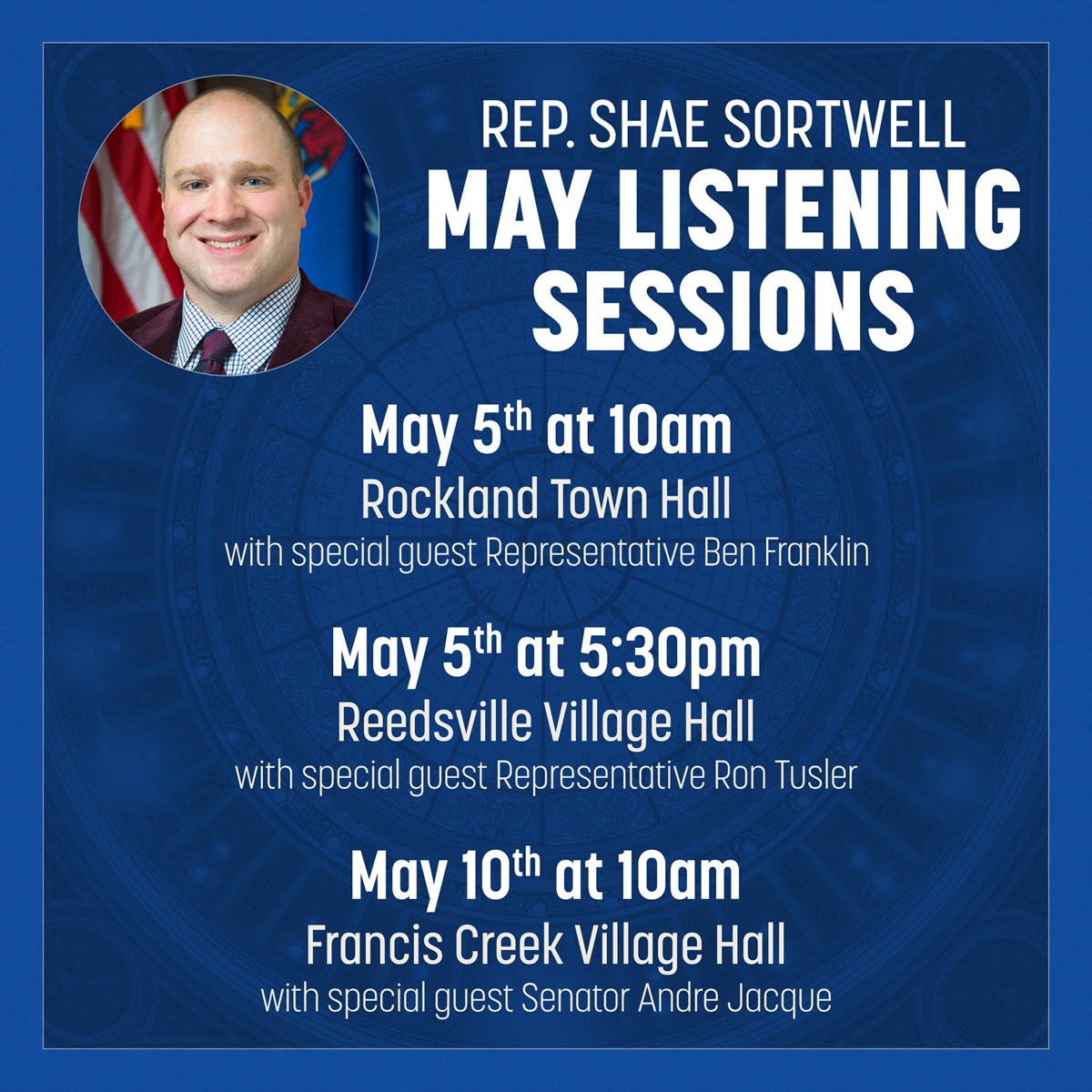Session (4/22)
Yesterday, April 22nd, the legislature met for session to vote on a number of workforce development bills. I voted in favor of all.
AB 73 provides statutory authority for two types of specialty courts that have been operating in Wisconsin for years with no specific authorization by state rule or statutory authority: treatment courts and business courts.
The first type of specialty court recognized by this bill are Substance Addiction Treatment Courts. By giving non-violent offenders the opportunity to go through a separate court focused on treatment, the criminal justice system is able to focus its efforts on convicting violent criminals and delivering justice to victims.
This bill additionally creates a specialized docket for commercial cases. By codifying these specialty courts, we would ensure that our court has another tool to improve efficiency and reduce the backlog.
AB 162 establishes performance metrics to allow agencies and the legislature to make better-informed decisions related to our workforce development programs.
AB 164 makes various changes to the unemployment insurance law and federal Reemployment Services and Eligibility Assessment grants.
This bill requires that for the third and following weeks of a claimant’s benefit year, at least two of the required weekly work search actions be direct contacts with potential employers.
AB 165 would prohibit taxpayer dollars from being used for the purpose of making payments to individuals under guaranteed income programs.
AB 166 requires University of Wisconsin System institutions, technical colleges, and private nonprofit colleges in this state (higher education institutions) to report cost and student outcome data that are ultimately made available as part of the academic and career planning services provided to high school juniors and seniors.
This allows students to be fully informed on the full costs and benefits of college.
AB 167 introduces reforms to our UI program that will ensure benefits only go to claimants who lost their jobs through no fault of their own and who actually are looking for work. These reforms include:
• Modernizing our UI misconduct statutes to include actions related to the destruction of records, unapproved use of a company credit card, and violations of companies’ attendance and social media policies
• Requiring the Department of Workforce Development (DWD) to audit 50% of work searches
• Subjecting future enhanced unemployment benefits to Joint Finance Committee (JFC) oversight
AB 168 seeks to modernize the Unemployment Insurance (UI) Program to improve its security and integrity in the wake of weaknesses exposed during the pandemic.
The six provisions of the legislation aim to improve identity proofing, statute of limitations, education and informational materials, the assistance call center, database comparisons, and fraud detection.
AB 169 creates a process to address the growing problem of individuals on unemployment “ghosting” potential employers while making required work search actions.
“Ghosting” is a practice in which an employer will contact a prospective employee for an interview, only to have that individual either not reply or not show up for the interview. Although the employee prospect did not show up for the interview, they are still able to actively receive unemployment benefits.
Criminal Justice and Public Safety Public Hearing
Today (4/23), in committee, we held a public hearing on one bill, AB 201.
AB 201 creates a new crime for activity known as “sextortion.”
Under the bill, it is a Class I felony for a person to do any of the following:
1. Threaten to injure the property or reputation of another to coerce that person to engage in sexual conduct or to produce an intimate representation.
2. Threaten to commit violence against another to coerce that person to engage in sexual conduct or to produce an intimate representation.
3. Threaten to distribute an intimate representation of another person with intent to coerce that person to engage in sexual conduct, produce an intimate representation, or provide payment of money, property, services, or anything of value, or to do or refrain from doing any act against that person’s will.
Additionally, I’m happy to share that my bill, AB 26, passed out of committee as well. Since it has already passed in the Senate, it just needs to pass on the Assembly floor so it can be sent to the governors desk to sign into law.
Three More Listening Sessions Coming Up

If you missed it in my last e-updates, here are the three dates for my listening sessions in May:
The first two will be on May 5th. The first will be at 10 a.m. at the Rockland Town Hall (1712 Bob Bea Jan Rd, De Pere) with special guest Rep. Ben Franklin.
The second will be later in the evening also on the 5th, at 5:30 p.m. at the Reedsville Village Hall (217 Menasha St, Reedsville) with special guest Rep. Ron Tusler.
Lastly, I will be hosting a third listening session on May 10th at 10 a.m. at the Francis Creek Village Hall (200 Norwood Dr, Francis Creek) with special guest, Senator Andre Jacque.
I hope to see you there!

In-District Events
Saturday, May 10th, will be a Renaissance Faire at the Brown County Library Weyers-Hilliard Branch from 11 a.m. to 3 p.m.


